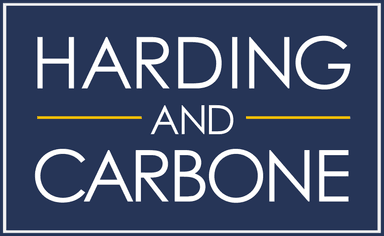Texas Property Tax Freeze For Seniors: What You Need To Know
October 12, 2025

Key Takeaways:
- Eligibility Insight: Texas seniors must be 65 or older and claim a homestead exemption to qualify for the school district property tax freeze.
- Veteran Benefits: Disabled veterans can receive partial or full property tax exemptions based on their VA disability rating, even if under 65.
- Application Process: Tax relief is not automatic. Homeowners must file with the county appraisal district to activate a freeze or exemption.
Property taxes in Texas can become a growing concern for homeowners, especially as they age or face long-term disabilities. For seniors, rising tax bills can place an unnecessary burden on fixed retirement incomes. For disabled veterans, managing household expenses while navigating service-related challenges adds another layer of stress. Fortunately, the state of Texas offers a property tax freeze for seniors and significant exemptions for disabled veterans. These programs exist to help residents remain in their homes without the added worry of increasing tax obligations.
At Harding & Carbone, we’ve spent over 50 years helping Texas property owners reduce their tax liability and claim the exemptions they’ve earned. Our work spans every county in the state, and our team is trusted by thousands of homeowners and businesses alike. We understand the complexity of local property tax codes and use our experience to make sure our clients never leave money on the table.
Understanding The Texas Property Tax Freeze For Seniors
In Texas, seniors aged 65 or older may qualify for a property tax ceiling, commonly referred to as a “tax freeze.” This freeze limits the amount of school district property taxes that can be imposed on a qualifying resident’s homestead. Once the freeze is in place, the school district taxes cannot increase as long as the homeowner continues to own and live in the property.
This isn’t a temporary benefit. It remains active for the rest of the qualifying individual’s life unless the property is significantly remodeled or the ownership changes. This can offer long-term financial stability, especially for those living on fixed retirement incomes.
The tax freeze applies only to school district taxes, not the total property tax bill. However, it can still significantly reduce the pressure of rising property taxes over time.
Harding & Carbone has helped Texas property owners navigate the nuances of these exemptions and freezes for decades. Learn more about our services if you’re unsure about your eligibility or need help managing the paperwork.
Who Qualifies For The Tax Freeze?
The Texas property tax freeze is a valuable tool for seniors looking to stabilize their housing expenses. However, not every homeowner automatically qualifies. Here’s a breakdown of the key eligibility requirements and considerations:
Age Requirement
To receive the senior tax freeze, the homeowner must be at least 65 years old. The freeze becomes available the year the individual turns 65, regardless of the specific birthdate within that year.
Primary Residence Status
The property must be the homeowner’s primary residence to qualify. Second homes, investment properties, or vacation homes are not eligible under this exemption.
Homestead Exemption Filing
A homestead exemption must be filed with the local appraisal district. This filing establishes the property as the owner’s principal residence and is a required step before any tax ceiling can be applied.
Spousal And Surviving Spouse Provisions
If one spouse is 65 or older and both own the home, the couple can still qualify. In the event of the older spouse’s death, the surviving spouse may continue to receive the freeze as long as they are at least 55 and continue living in the home.

Special Circumstances And Exceptions
Eligibility can become more complex in cases involving trusts, shared ownership, or inherited property. Consulting with a tax specialist can clarify how the rules apply in these scenarios. Harding & Carbone works with homeowners across Texas to address these nuances and help them secure eligible tax relief.
How The Freeze Works: A Practical Breakdown
Understanding how the tax freeze functions can help seniors make more informed decisions about their property and finances. The process is relatively straightforward but includes a few key rules that determine how the freeze is applied:
Applies To School District Taxes Only
The freeze limits only the school district portion of your property tax bill. Other taxing entities, such as city or county, can still increase their rates. However, because school district taxes often make up a significant share, the freeze can lead to meaningful savings.
Freeze Amount Is Based On The Year You Qualify
The amount you pay in school district taxes is frozen at the level it was when you first qualified for the exemption. This becomes your “ceiling” and even if property values rise or tax rates change, your school district taxes cannot go above this amount. Explore our services to find out how we can assist with ongoing property tax oversight.
What Happens If You Make Home Improvements
Making significant improvements to your home, like adding a new room or a garage, can lead to an increase in the taxable value. In such cases, the freeze can be adjusted to reflect the added value. Routine maintenance or minor repairs, on the other hand, won’t affect your frozen amount.
Transferability To A New Home
If you move to another primary residence in Texas, you can transfer the percentage of the tax ceiling savings from your previous home. The actual dollar amount may change, but the proportional savings will carry over to your new property.
How To Apply For Property Tax Relief
Applying for a property tax freeze or exemption in Texas isn’t automatic. Homeowners need to take specific steps to begin receiving this benefit. Here’s what to know about the process:
Start With The Homestead Exemption
Before applying for the tax freeze, you must have a homestead exemption on file with your county appraisal district. This step confirms that the property is your primary residence and lays the foundation for any additional exemptions.
Submit The Age 65 Or Disabled Person Exemption Form
Once the homestead exemption is in place, complete and submit the Application for Residence Homestead Exemption. This form has a specific section for those aged 65 or older, as well as for individuals with disabilities. You will need to provide documentation verifying your age or disability status.

Include Proof Of Eligibility
Along with the application, include a valid form of ID such as a Texas driver’s license or state-issued ID card that matches the address of the property. Some counties may ask for additional documentation to verify eligibility, especially in more complex ownership scenarios.
Track The Application With Your County Appraisal District
Each county handles its own appraisal records, so be sure to follow up with your local appraisal district if you don’t receive confirmation. Harding & Carbone helps homeowners stay ahead of deadlines, follow up with local offices, and avoid common filing mistakes. If you’re unsure where to start, their team can walk you through the process.
Additional Relief For Disabled Veterans In Texas
In addition to the senior property tax freeze, Texas offers significant property tax exemptions for disabled veterans. These exemptions are separate from the senior freeze and can apply even if the veteran is under the age of 65.
Understanding The Disabled Veteran Exemption
Disabled veterans may qualify for a partial or full property tax exemption based on their disability rating from the U.S. Department of Veterans Affairs. The higher the disability rating, the greater the exemption amount. Veterans with a 100% disability rating may be eligible for a total exemption from property taxes on their primary residence.
Surviving Spouses May Also Qualify
The surviving spouse of a qualifying disabled veteran may also receive the same exemption, provided they do not remarry and continue to occupy the same property as their principal residence. This continuation can offer long-term financial relief to families who have lost a loved one.
Can You Combine The Senior Freeze With The Veteran Exemption?
Yes, it is possible to benefit from both the senior property tax freeze and the disabled veteran exemption, if eligible. Harding & Carbone regularly helps clients layer exemptions effectively, maximizing tax relief without missing out on important filings. For veterans or spouses navigating this process, their team can assist with reviewing eligibility and handling the paperwork.

Why Work With Harding & Carbone?
Property tax exemptions and freezes can offer meaningful relief, but the application process and eligibility rules aren’t always straightforward. Mistakes, delays, or incomplete filings can lead to missed savings that compound over time. Harding & Carbone has worked exclusively in property tax management for over 50 years, helping Texas property owners navigate complex requirements with clarity. Whether dealing with multiple exemptions, inherited property, or questions about eligibility, their team provides tailored support based on each homeowner’s specific circumstances. They maintain long-standing relationships with appraisal districts across the state, which helps streamline communication and resolve issues efficiently.
What sets Harding & Carbone apart is their focus on long-term property tax strategy. They don’t just assist with filing paperwork. Their approach includes reviewing a homeowner’s full property tax profile, identifying overlooked exemptions, and advising on future opportunities for tax savings. Learn more about what we offer and how our team can support you well beyond the initial application.
Final Thoughts
Understanding property tax relief options in Texas is more than just knowing what’s available, it’s about knowing how to apply them to your situation. Whether you’re a senior hoping to stabilize your school district taxes or a disabled veteran seeking full or partial exemptions, taking action can lead to meaningful, long-term savings.
Harding & Carbone is committed to helping homeowners make sense of the process without adding stress. From identifying which exemptions apply to ensuring forms are filed correctly, their team brings clarity to a system that often feels complicated. If you’re looking for experienced guidance on how to reduce your property tax burden, reach out to us for a conversation that starts with your needs.
Read Also:
- Brazoria County Taxes: A Guide To Rates, Exemptions, And Due Dates
- Everything You Should Know About Galveston County Property Taxes
- How To Manage Property Taxes In Harris County
Frequently Asked Questions About Texas Property Tax Freeze For Seniors
What is the difference between a tax freeze and a tax exemption in Texas?
A tax freeze limits future increases in a specific portion of your property tax bill, while a tax exemption reduces the taxable value of your home, lowering the total tax owed.
Can I qualify for a senior freeze if I live in a manufactured home?
Yes, as long as the manufactured home is your primary residence and you have a homestead exemption filed with the county, you may still qualify for the senior freeze.
Are school district bonds or additional levies still collectible after the freeze is in place?
Yes, new bonds or voter-approved levies by the school district may still appear as charges, even with a freeze, depending on how local authorities structure the rate.
Does a senior property tax freeze expire after a certain number of years?
No, the freeze remains in effect for as long as the homeowner lives in the property and maintains their primary residence status.
If I move to another Texas county, will my senior freeze transfer?
The freeze itself does not transfer, but you may transfer the percentage of savings from your previous tax ceiling to the new property if it becomes your primary residence.
Can someone under 65 co-owning with a senior affect eligibility for the freeze?
No, as long as one of the owners is 65 or older and the property is their primary residence, the freeze can still apply, regardless of the age of other co-owners.
Are disabled veterans automatically granted property tax exemptions in Texas?
No, they must apply through their local appraisal district and provide documentation of their disability rating from the VA to qualify.
What happens to the senior tax freeze if the home is inherited?
The freeze ends when the senior passes away unless the surviving spouse qualifies. Heirs must apply for exemptions based on their own eligibility.
Do I need to reapply for the freeze each year?
No, once approved, the senior tax freeze stays in place unless there is a change in ownership, residence status, or qualifying conditions.
Can a homeowner with a partial disability rating receive any property tax benefit?
Yes, partial exemptions are available for veterans with ratings as low as 10%, offering a reduction in assessed property value based on the percentage of disability.
